We can’t get through summer without publishing some canning recipes. Unless you are me. I try to do most of my canning in January and February when I am looking for a warm kitchen; mostly pizza sauce, spaghetti sauce, and chili base. I am a fan of Mrs. Wages and seldom use a “recipe”. I have some great canning recipes to share with you, so go grab a cup of coffee or tea and enjoy some canning recipes. [Did you miss Part 1? Part 2?]
Unique canning recipes
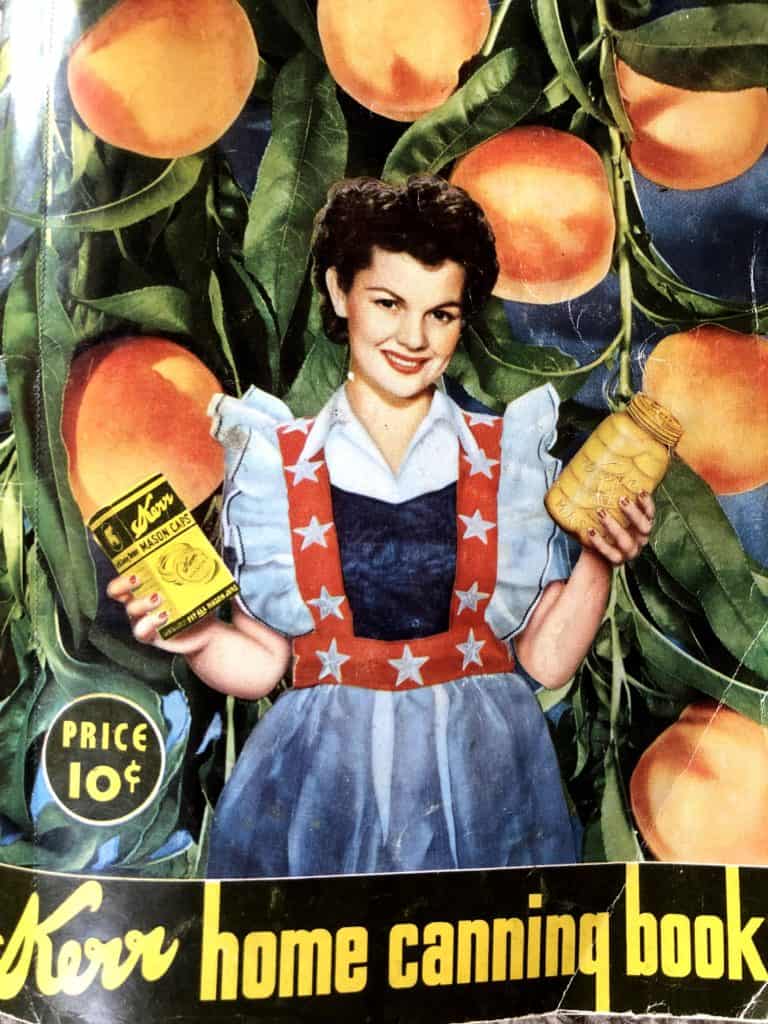
Nothing warms my heart than finding old recipe booklets and books. I love the pictures as well as anecdotal advice on cooking, baking, and life. My most recent find, yet again, was at Farmhouse Market in downtown Edgerton. I happened upon this little cook booklet and immediately snatched it up.
I love the booklet front cover. The patriotic apron is so cool! I just love the model’s hair and smile… cute! All credit is given to “Kerr home canning book” circa 1943. Let’s get to some unique recipes!
Rhubarb – baked and hot packed
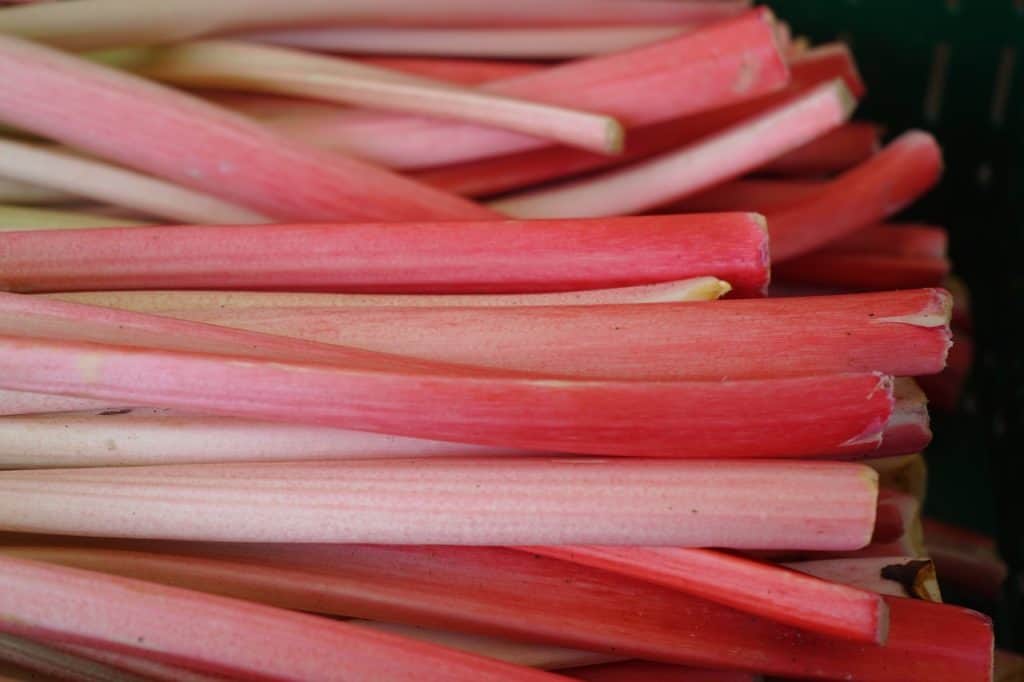
-I’m gonna give this one a crack. I don’t like rhubarb, so if I fail, I haven’t ruined anything of canning importance. Plus, I’m going to try out my Harvest Gaurd reusable canning lids. I will let you know how well this all turns out.-M
WASH and cut into 1-inch lengths. Place in a baking dish and add 1 cup sugar to each quart of rhubarb. Cover dish and bake until tender. Pack rhubarb and syrup which has formed, into clean KERR Jars, to within 1/2 inch of top. Put on cap, screwing band firmly tight. Process in water bath 5 minutes.
How To Make Syrup
ANY fruit may be successfully canned in a syrup of any density. The sweetness desired in the finished product should govern the syrup used. The following table has been found most pleasing to the majority of people:
No. 1 Syrup– Use three parts of water or fruit juice to one part of sugar and bring to a boil.
No. 2 Medium Syrup– Use two parts water or fruit juice to one part of sugar and bring to a boil.
No. 3 Heavy Syrup– Use one part of water or fruit juice to one part of sugar and bring to a boil.
The thin syrups are generally used for small, soft fruits, as sweet cherries, berries, etc. Medium Syrups are generally used on peaches, sour berries, acid fruits, as rhubarb, cherries, gooseberries, etc. Heavy syrups are generally used on larger sour fruits that are to be extra sweet.
Clam Broth
– I will never again, and I mean N.E.V.E.R. eat clams or drink clam broth. I tried fried clams once. Chewy and gross. GROSS! But, I know you “clammies” like your clams… so here you go! A clam broth recipe. You’re going to need “fresh” clams… good luck finding those around here. The challenge is on! Enjoy.
USE fresh clams. Open and place them in the kettle with their own liquid. Add enough water to cover and season with salt, pepper and celery cut fine. Precook for 10 minutes. Strain and pour into clean KERR Jars. Put on cap, screwing band firmly tight. Then process according to the timetable for Clam Chowder. Hot water bath 240 minutes. Or pressure can at 15 pounds for 90 minutes.
Asparagus Soup

THE tough part of asparagus may be used. Cook in water to cover. When soft, press through sieve. Pack into clean KERR Jars, add 1 teaspoon of salt to each quart jar if desired. Put on cap, screwing band firmly tight. Process according to the timetable. Hot water bath for 180 minutes. Or pressure can at 10 pounds for 40 minutes.
-Next up is a very unique recipe using rose geranium leaves. This would make on interesting jelly.
Rose Geranium Jelly

SELECT sound, tart apples. Wash and cut off blossom ends. Do not remove peeling or cores. Cut into quarters and barely cover with water. Cook until the fruit is tender. Strain juice through jelly bag and measure. Bring to boiling point and add 3/4 cup sugar for EACH cup of juice. Boil rapidly to the jelly stage and when almost done, immerse in the boiling jelly 2 or 3 rose geranium leaves. (*) This will wilt quickly and give off their flavor. Tint with rose vegetable coloring. Pour into sterilized KERR Jelly Glasses.
*The KERR home canning book didn’t say to remove the wilted geranium leaves, but I would recommend that you do. Back then they figured everyone had common sense, today… not so much.
Click for More Amazing Preserves Recipes!

Michele Bruxvoort is sure to draw you in with her delightful sense of humor and love for living life. She enjoys reading, repurposing, as well as remodeling the family home with her husband. Drawing from her life experience as wife, mom, and follower of Jesus, Michele brings you a very honest and real perspective on life. When you don’t find her writing, you can find her mowing lawns, stocking shelves, taking care of her grandbaby and tackling her latest life adventure.
Wisconsin native and empty-nester, she now makes her home with her husband of 27 years in the South West Prairie plains of Minnesota.

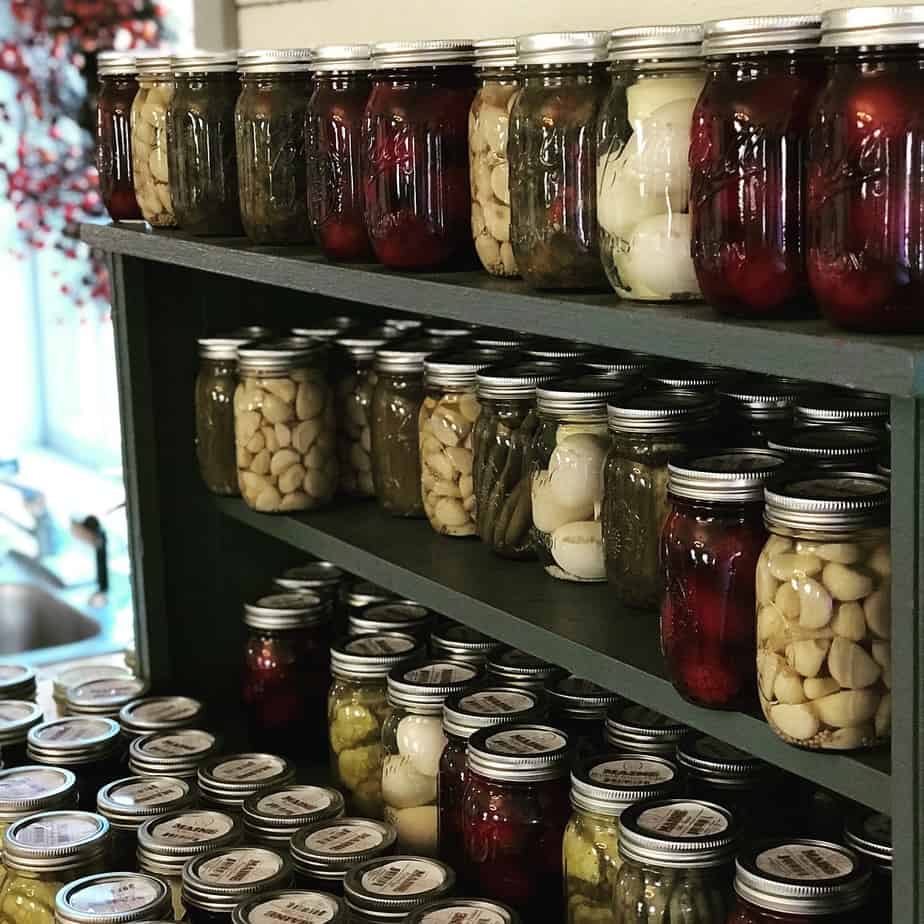

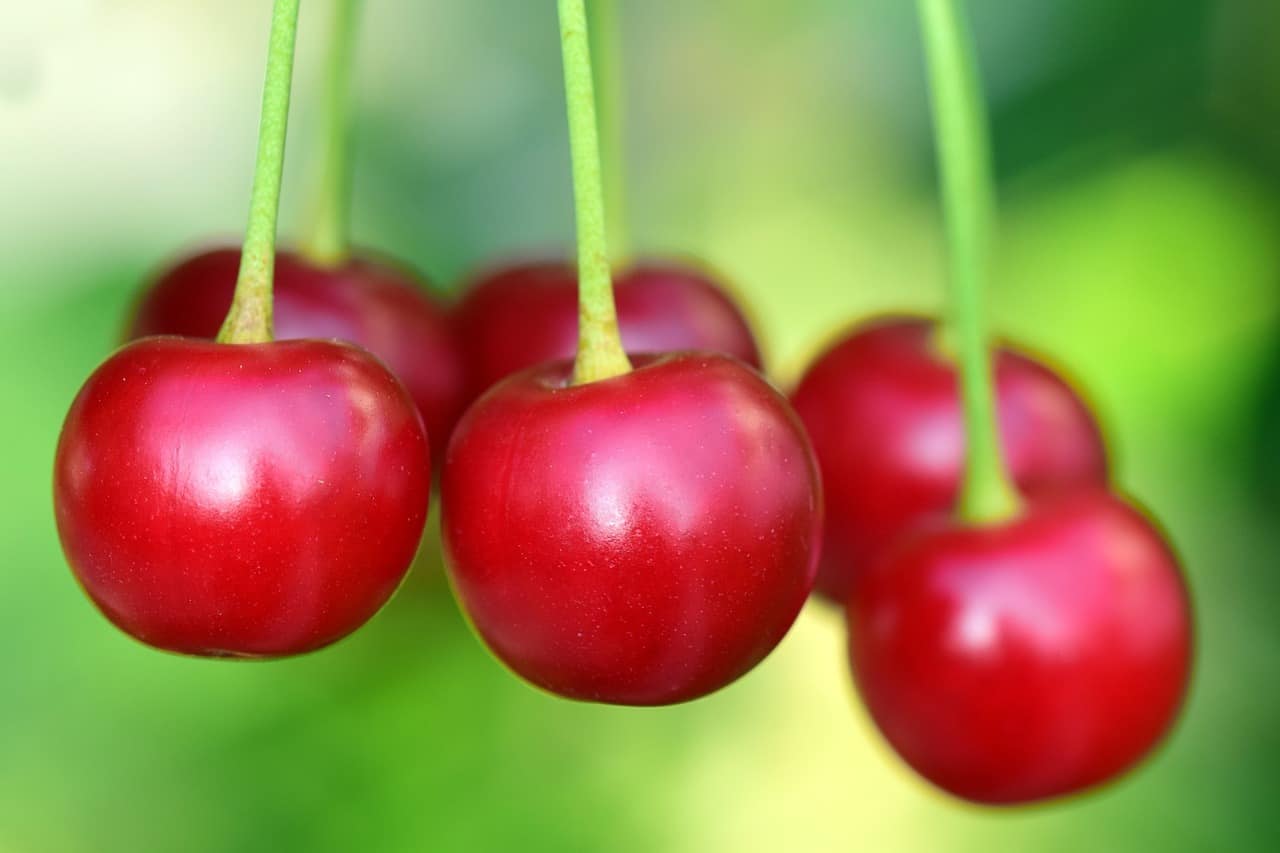
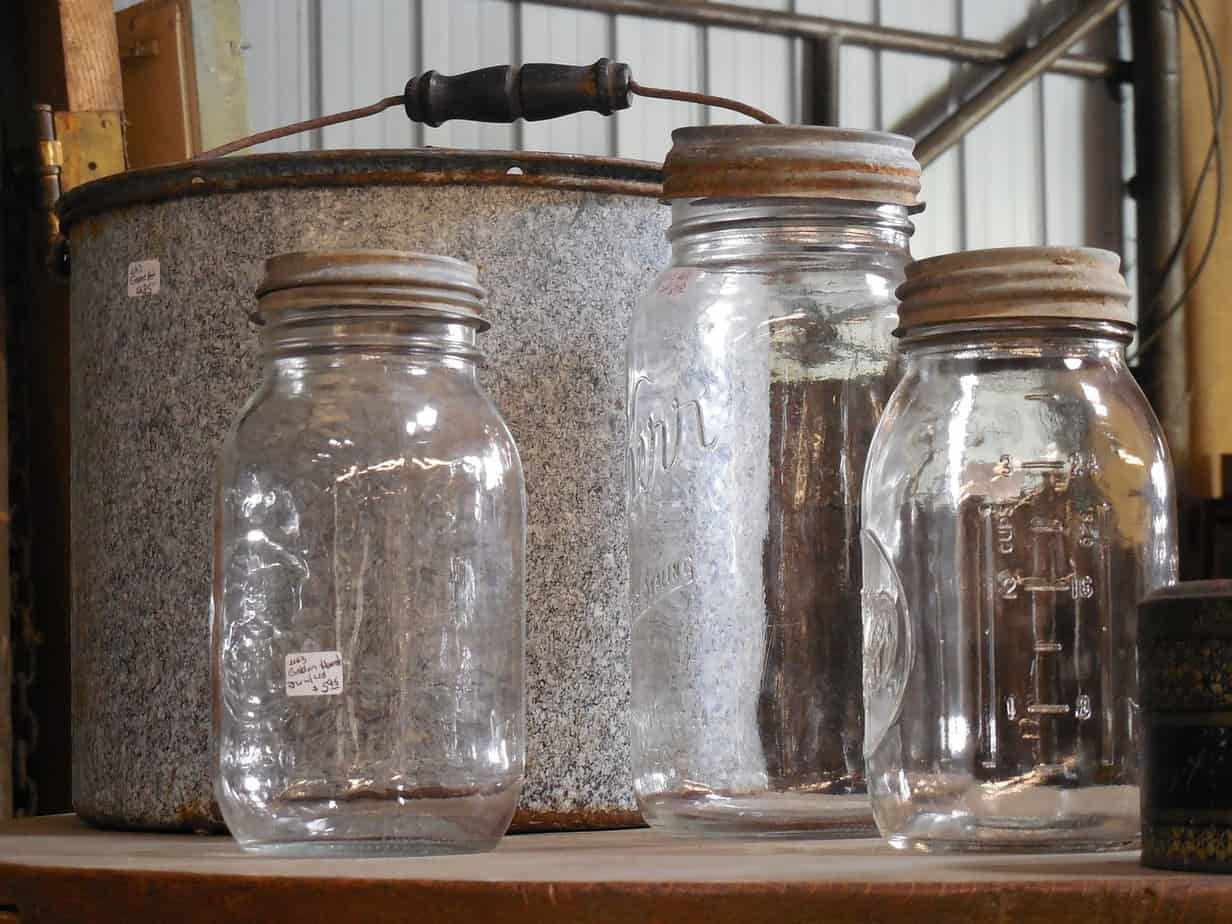
Thanks so much for linking up at the Unlimited Link Party 32. Pinned!
CONGRATS! Your post is FEATURED at my Unlimited Link Party 33!
Dee! Thank you for your link-up party!
Michele